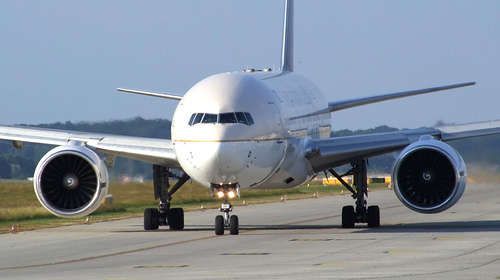
Jeddah, Jul 31: The privatization of Saudi Arabian Airlines is in the final stages, said Prince Fahd bin Abdullah, president of the General Authority of Civil Aviation, and chairman of the airline’s board of directors.
“We hope Saudia’s privatization process would be completed shortly,” the prince told reporters after witnessing the signing of an agreement for the privatization of the Saudi Aerospace Engineering Industries (SAEI).
He said Qatar Airways and Gulf Air, which are licensed to operate domestic flights in the Kingdom, are scheduled to start their operations within the next three months after completing some establishment procedures and opening their offices in the Kingdom.
Saudia has sold 30 percent of its stake in SAEI to Tarabut Aircraft Maintenance Company, an affiliate of Integrated Transport Company (ITC). The agreement between the two organizations was signed by Prince Sultan bin Muhammad bin Saud Al-Kabir, chairman of ITC, and Khaled Al-Molhem, director general of Saudia.
Prince Fahd emphasized the important role of SAEI, which provides aircraft maintenance services not only for Saudia but also for foreign airlines. “We hope it would become a major aircraft maintenance center in the Middle East,” the chairman said.
Al-Molhem said: “This is another important step toward privatization of the airline’s strategic units and it was decided after conducting adequate studies with the support of international consulting firms.”
The Saudia chief underscored the desire of investors to participate in Saudia’s privatization process. “This strategic partnership will have great benefits for the Kingdom as well as investors. This is a model of successful partnership between the public and private sectors,” he added.
Prince Fahd chaired a meeting of Saudia’s board to discuss the financial reports and operational performance during the first half of 2013, its Haj and Umrah plan for this year and the airline’s efforts to modernize its fleet, develop its IT infrastructure and improve services to passengers.
“We have to achieve higher operational rates to compete with other airlines at regional and international levels,” the chairman said.





Comments
Add new comment